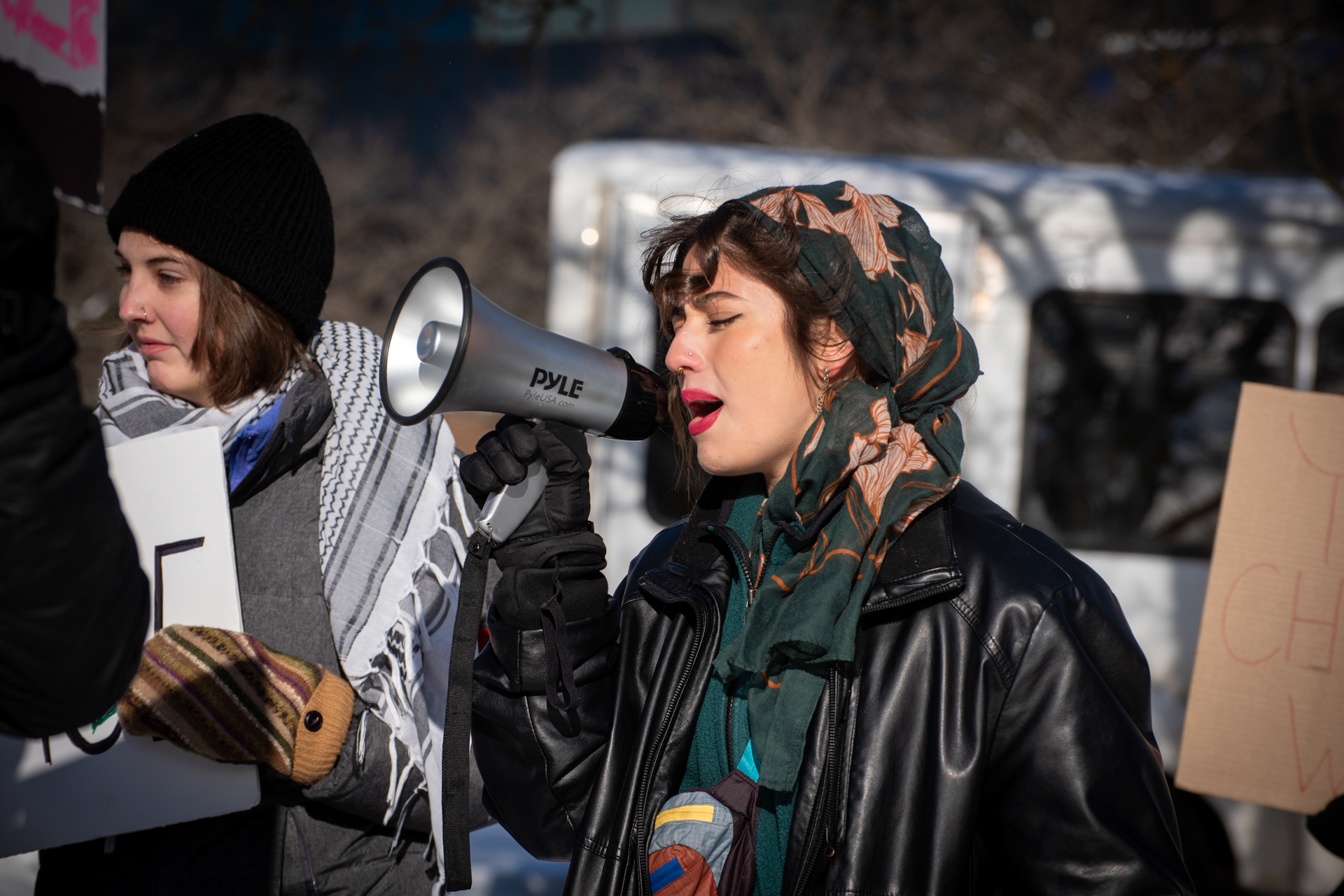Goshen College students joined community members in Elkhart on Saturday at a protest calling for a ceasefire in Gaza.
The protest was organized by community members from Goshen and Elkhart. Luisa Dutchersmith, a junior elementary education and TESOL major, played a role in organizing the event. She was involved in general brainstorming and leading songs and chants.“I was happy with the turnout,” Dutchersmith said. “There were about 100 people there, which for Elkhart in 15-degree weather was pretty good. And there was some news coverage on it, which is what we want.”
Each protester has a different reason for marching. For Dutchersmith, the conflict has personal ties.
Dutchersmith was part of the GC May Term that went to Palestine last year. “Having personal connections to the area and knowing people there, it just feels a lot more personal,” she said.
“Like, I need to do something about it. I can’t just sit and watch this happen and not be part of it, not try to do something. Especially living in a country that’s very much the reason this is continuing. It feels very important to use our voices and do what we can.”
Jordan Ross Richer, a first year criminal justice and restorative justice major, felt compelled to go as well.
“I feel that it’s important for there to be a presence, a young presence, at the protests,” Ross Richer said. “I know that if I was in that situation . . . I would want people to be in support of me. So I want to do that, give the support back to them.”
Zachary Shields, a sophomore social work and peace, justice and conflict studies double-major, said: “I’ve been looking to get engaged in the different protest movements and the kind of counterculture that exists in the Mennonite circles here in Indiana, and I thought it was a good way to get started.”
For Carmen Merino, a junior interdisciplinary major with focuses in ecology, psychology and biology, protesting is an important part of her life.
“I believe that as human beings, we all have a moral and ethical obligation to speak up, raise questions and protest against the abuse, genocide and destruction of an entire civilization,” she said. “I grew up going to all sorts of civil rights protests and this is no different.”
Merino ended up being more involved than she expected, at one point even leading chants through a megaphone.
“Luisa ran up to me at one point and said, ‘Carmen … the person who was supposed to be leading these chants in this march didn’t show up … can you stand by me?’ It’s one of those little moments that shows you just how significant solidarity can be.
“When you’re asked to step up, you step up.”
For the protesters, the goal of rallies is to spread their message.
Dutchersmith hopes rallies can be a place where people see things in a new way. “I think news coverage is one thing we really hope to get from rallies because news coverage . . . helps it spread a little more,” she said.
“I do believe it’s important because we’re raising awareness,” Ross Richer said. “Awareness is key to making change, to show the people with more power that we do care about these issues.”
Merino said: “I guess for me it’s just common sense. It’s what you do as a human who cares about other individuals . . . there’s evidence and proof that peaceful, nonviolent protests have affected change, have made a difference.”
Some GC students feel they have an additional responsibility to protest.
Shields said: “Today more than ever there is a need for students, young and old, to step up [and] say our piece about war and conflict across the globe.”
“I would definitely encourage young people out there,” Ross Richer said. “It would be great to see more college-aged people out there . . . we are the future.”



